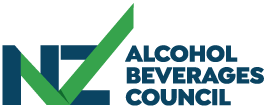30 December 2020
The NZ Alcohol Beverages Council (NZABC) says there’s one more task for the team of five million this New Year and that’s to keep celebrations safe and social.
“Everyone has worked hard to get through challenging times over the past year, and we can expect this New Year’s Eve there will be many Kiwis keen to give 2020 a big send-off,” says Bridget MacDonald, NZABC’s Executive Director.
“But we’re asking everyone to keep their celebrations safe and social wherever they may be ringing in the new year,” says Bridget.
“The majority of Kiwis are already moderate and responsible drinkers so let’s keep it that way as 2020 becomes 2021. We can help keep things safe and social and make those good times last longer if we think about what we are drinking and how we are drinking. So, a good rule of thumb is ‘Go no, low or slow’ – it’s always okay to choose a no– or low–alcohol drink, or if you choose to drink then sip and savour your drink slowly,” Bridget says.
Recent industry research found that 40% of Kiwis drink low-alcohol beverages. The key reasons for choosing low-alcohol were: 22% of people saying they preferred a low-alcohol drink, 18% for health and wellbeing, and 17% because they were driving. Those whose preference is for low-alcohol beverages were likely to be women (29%) and people in the 18-40 years (25%) and 61+ years (28%) age groups.
“Kiwis are making positive changes in their attitude and behaviour towards alcohol. We are becoming more aware of what and how we are drinking and the choices available to us, such as no- and low-alcohol options. Research shows that hazardous drinking is declining and fewer younger people are drinking in New Zealand, and our consumption is decreasing and below the OECD average. There is more work to be done to accelerate these trends, and many Kiwis are already making better decisions around alcohol based on their personal circumstances, situation and their lifestyle,” Bridget says.
In addition to encouraging people to consider the range of no- and low-alcohol options available, the industry supports educational programmes and promotional activities that promote moderate and safe consumption of alcohol, including cheers.org.nz and alcoholandme.org.nz to help people to understand what a standard drink is and how to make better drinking decisions.
“Let’s start 2021 with everyone playing their part to help create a safe and social New Zealand,” says Bridget.
Tips for safe and social New Year’s celebrations if you chose to drink
• A good rule of thumb is ‘Go no, low or slow’ and Sip and Savour. It’s always okay to choose no or low alcohol drinks. If you choose to drink, pace yourself and enjoy your drink slowly.
• Know what a standard drink looks like and keep an eye on how many you are drinking.
• Eat when you are drinking.
• Drink water in between drinks to stay hydrated.
• Have a plan to get home safely. Leave the car at home.
• Support others to stay safe and social. Look out for your friends or family.
• If you’re hosting, make sure there’s plenty of food, no- and low-alcohol options, and water available.
• If you are out and about be sure to use the NZ COVID tracer app.
Need more information?
• Check out cheers.org.nz and alcoholandme.org.nz for more information on what a standard drink is and how to make better drinking decisions.
• Ministry of Health/HPA Guidelines: Low-risk alcohol drinking advice to reduce your long-term health risks by drinking no more than:
– Two standard drinks a day for women and no more than 10 standard drinks a week,
– Three standard drinks a day for men and no more than 15 standard drinks a week,
– AND have at least two alcohol-free days every week.
Need help?
Call the Alcohol Drug Helpline on 0800 787 797, free txt 8681, or visit alcoholdrughelp.org.nz.
Research as noted above;
• No- and low-alcohol consumption: NZ Alcohol Beverages Council, New Zealander attitudes to alcohol research, December 2020, poll of 1000 New Zealanders: 40% of respondents say they drink low-alcohol beverages; 25% say they are drinking the same amount of low-alcohol beverages as a year ago, and 8% drinking more and 8% less than a year ago. The most common reasons for drinking low alcohol beverages were:
- 22% preferred low-alcohol beverages (29% of women said they prefer low-alcohol beverages, as did 25% of people aged 18-40 years and 28% of people aged 61+ years).
- 18% for health and wellbeing (23% of women said it was for health and wellbeing reasons).
- 17% because they were driving (24% of men said this was why they drank low-alcohol beverages).
- 12% said it was to be social.
- 5% to avoid being intoxicated.
- 5% for a lower calorie drink.
